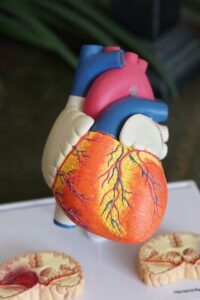![]()
Causes of Malaise and How to Treat It: Malaise is an affective response that includes an uneasiness, restlessness, dissatisfaction and a sense of mental or physical exhaustion. It can be caused by physical problems such as excessive tiredness or stress, emotional problems such as depression, or even issues with one’s lifestyle and social life. If you don’t feel fully engaged by your work, it may be a sign of malaise. In this article, we’ll take a look at the five causes of malaise and how you can use them to jolt yourself back into high gear for optimal performance.
What is Malaise?
Malaise is a general feeling of discontent. It may manifest as an anxious, depressed, or listless state. Having this feeling of malaise can make you feel unproductive and unmotivated. Some causes of malaise include: excessive calorie intake, lack of exercise, stress levels over exerted yourself too much, and chronic lifestyle stressors. There are many ways to treat it depending on your symptoms and that includes seeking professional help from your doctor or therapist, taking vitamins for example B12 or D supplements, dietary changes such as adding more omega-3 fatty acids or changing the timing or type of meals you’re eating each day.
5 Causes of Malaise
Malaise is a state of discontent and dissatisfaction, where an individual feels as though there are things that they are doing wrong, that they are not good enough and that they have lost the sense of purpose. The 5 Causes of Malaise are:
1) Overworking your body
2) Focusing too much on other people
3) Neglecting self-care
4) Giving away too much control to others
5) Not living up to expectations
What are the Symptoms of Malaise?
Malaise is a word that was first used in the 1800s to describe feelings of malaise or illness. It’s a state of feeling so unwell and uncomfortable that it inhibits you from doing anything. Symptoms can vary depending on the cause, but malaise can be caused by many things including: stress, exhaustion, sleep deprivation, allergens and environmental toxins.
The causes of Malaise can be difficult to pinpoint and easily treat based on the symptoms that you are experiencing. The main causes are usually related to your health and how it is affected by the consumption of alcohol, caffeine, sugar, smoked or processed foods, or excess amounts of proteins. As a result, Malaise is quickly remedied by quitting the habits that are causing it.
How to Treat Your Symptoms with Treatment Methods
There are many different causes of malaise, including chemical imbalances, hormone problems and too much salt in your diet. Although it may be tempting to use a prescription drug to fix the problem, that is not the right decision. Instead, consider using some natural remedies or switching to a healthier diet. Malaise is a state of feeling lethargy and general listlessness.
11 Best Home Remedies for Yeast Infection
There are many different causes to the condition, some of which may include stress, lack of sleep, depression, and more. People have five different treatment methods that they can take to help relieve their symptoms. These five treatments include prescription medications, psychotherapy, exercise therapy, environmental enrichment therapy, and alternative therapies such as acupuncture.
Final Note
No one wants a list of causes and potential solutions to the problem of feeling malaise. You want to know what to do now. The 5 Causes of Malaise are:
-Excessive Comparison
-Lack of Sleep
-Insecurity in Relationships
-Despair and Depression
-Fear of the Unknown
Writers are often plagued with the most common maladies known to man – depression and anxiety. The causes of these feelings can be attributed to our environment, the economy, physical health and stress. With a little help from our friends – like food, exercise and therapy – we can steer clear of many different paths that lead towards malaise.
What are the Symptoms of Cachexia?






